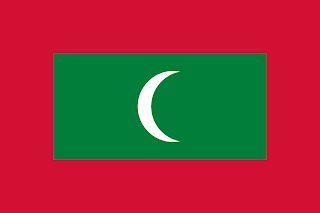The Maldivian Ministry of Foreign Affairs, in a statement released today, said the Maldives had decided to withdraw from the Commonwealth.
The statement is reproduced below:
The Government of Maldives has decided today to leave the Commonwealth. The decision to leave the Commonwealth was difficult, but inevitable.
The Maldives joined the Commonwealth in 1982 with high hopes and expectations, convinced that the organisation will be an arena for coordinating critical issues that the member States, in particular, the smallest members of the organisation face.
Since 2012, the Government of Maldives gave maximum cooperation to the Commonwealth, showed maximum transparency, and engaged with the Commonwealth at the highest levels. The Government had high hopes that such level of engagement will produce fruitful results. Regrettably, the Commonwealth has not recognised that progress and achievements that the Maldives accomplished in cultivating a culture of democracy in the country and in building and strengthening democratic institutions.
The Government of President Abdulla Yameen Abdul Gayoom has enacted a total of 110 pieces of legislations, of which, 94 legislations were directly related to the core values set out in the Commonwealth Charter. An overwhelming majority of these legislations (69 out of 94) were specifically designed to promote human rights, to strengthen democratic governance, and to reinforce the separation of powers. These achievements have resulted in strengthening the rule of law and produced tangible outcomes in strengthening democratic institutions in the country.
The Commonwealth has sought to take punitive actions against the Maldives since 2012 after the then President of Maldives resigned, and transfer of power took place as per the procedures set out in the Constitution. The Commonwealth’s decision to penalise the Maldives was unjustified especially given that the Commission of National Inquiry (CoNI), established with the help of the Commonwealth, found that the transfer of power in the Maldives was consistent with the constitutional provisions.
Since then, the Commonwealth Ministerial Action Group (CMAG) and the Commonwealth Secretariat have treated the Maldives unjustly and unfairly. The Commonwealth has sought to become an active participant in the domestic political discourse in the Maldives, which is contrary to the principles of the Charters of the UN and the Commonwealth. The CMAG and the Commonwealth Secretariat seem to be convinced that the Maldives, because of the high and favourable reputation that the country enjoys internationally, and also perhaps because it is a small State that lacks material power, would be an easy object that can be used, especially in the name of democracy promotion, to increase the organisation’s own relevance and leverage in international politics.
The Maldives reassures that its international engagement will continue both bilaterally and multilaterally.
The Commonwealth of Nations is an intergovernmental organisation of 53 member states, that were mostly territories of the former British Empire.
Member states have no legal obligation to one another, but are united by language, history, culture and their shared values of democracy, human rights, and the rule of law – values enshrined in the Commonwealth Charter.
The Gambia is the most recent nation to withdraw from the Commonwealth.
